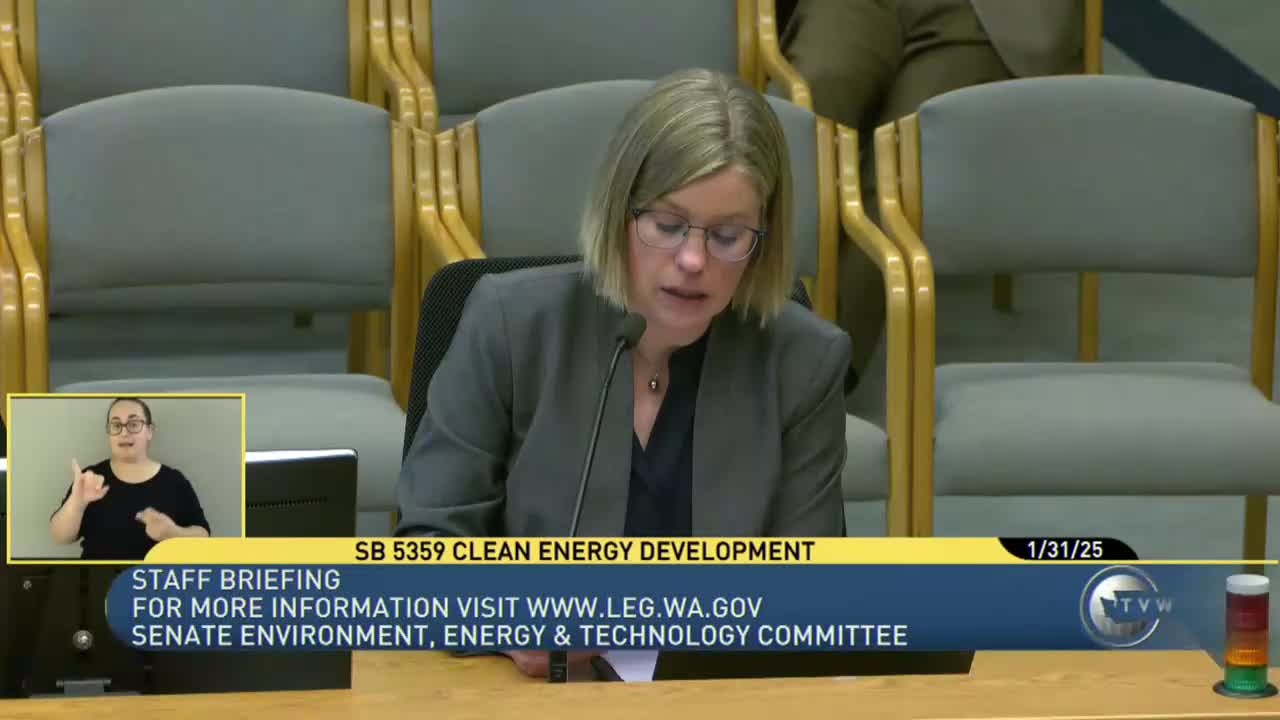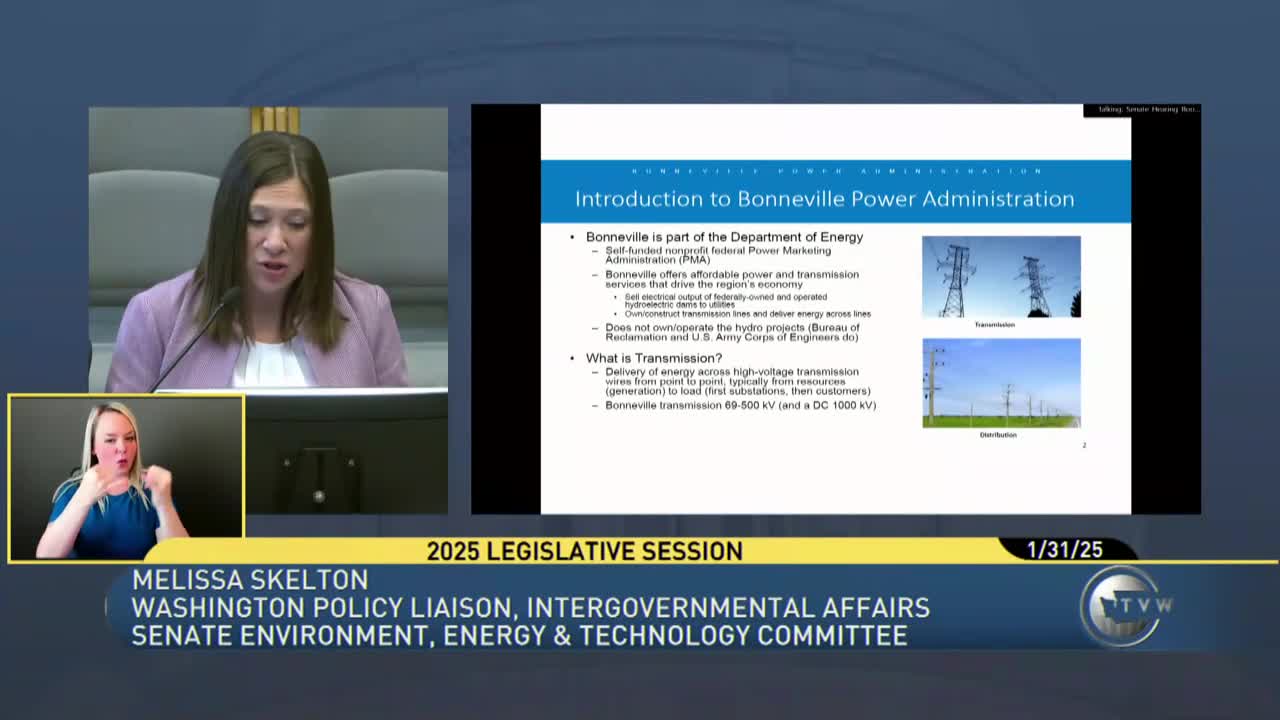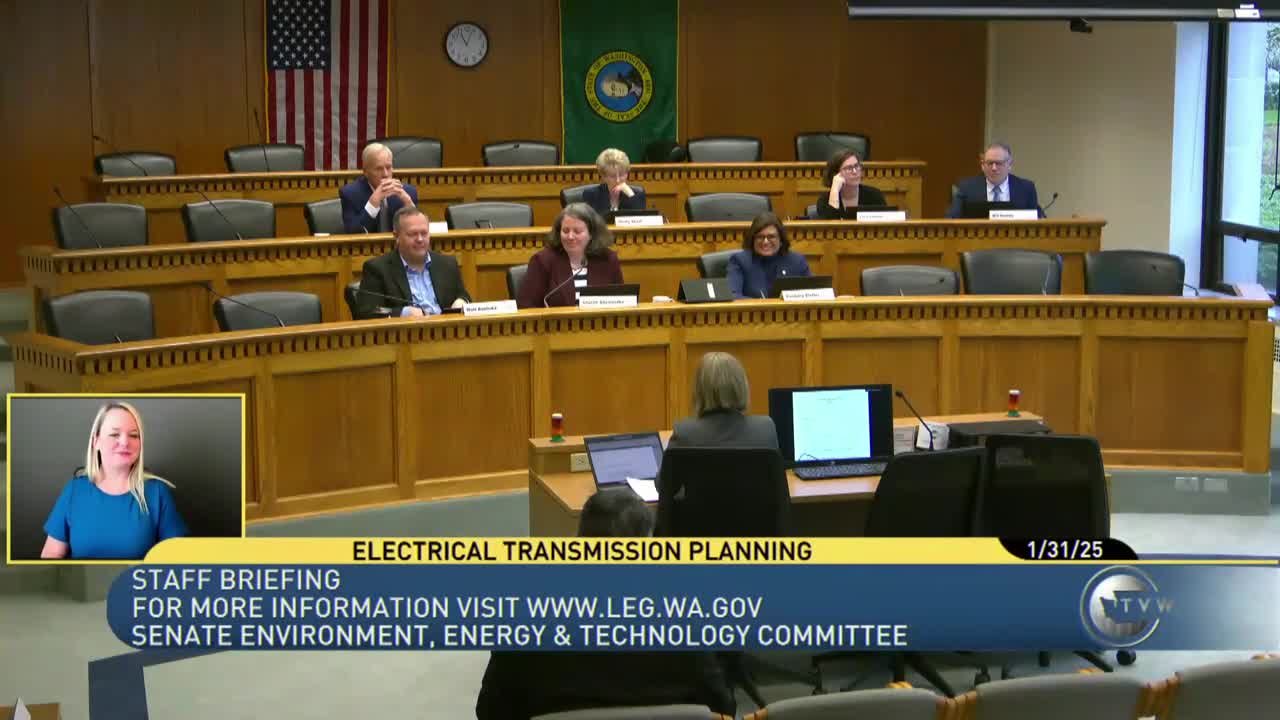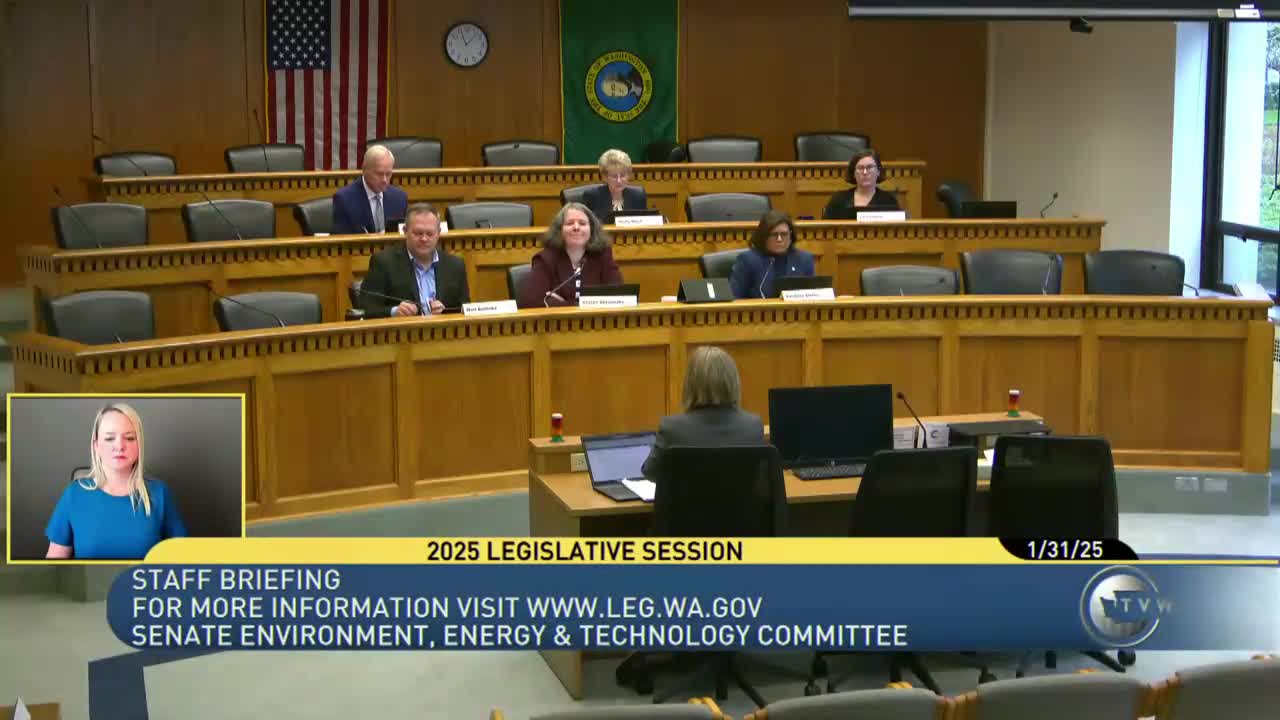Article not found
This article is no longer available. But don't worry—we've gathered other articles that discuss the same topic.

Commerce seeks new Clean Energy Development Office to speed siting, dashboard and battery storage guidance

Bonneville officials brief Senate committee on transmission capacity, queue growth and grid-enhancing technologies

Bill to shield local governments that assist FSEC from certain appeals advances to committee hearing

